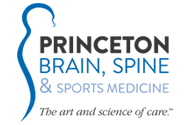Tips to Improve a Long Recovery
A long recovery from a major surgery or operation is an ongoing process that requires discipline in self care, mental stamina, and emotional fortitude. Recoveries can span months or even years depending on the severity of the procedure. Medical professionals carefully tailor rehabilitation strategies based on individual patient needs, and it’s crucial to follow these instructions to the letter in order to ensure a successful recovery. Here are some valuable tips for managing the physical and mental challenges that accompany long-term recoveries.
Follow Instructions
Patients are often in a rush to be discharged and don’t take the time to properly understand recovery plans before exiting the hospital. Paying close attention to discharge instructions and studying educational materials will provide the guidance you need to properly care for your injuries following surgery. Due to the physical and mental stress of long-term recoveries, some patients also become less diligent in taking prescribed medication and attending physical therapy appointments. Although this process can be long and difficult, it’s essential that you follow these aspects of your recovery plan closely to ensure a successful rehab. You should also continue to communicate closely with your doctor regarding any new developments that occur or any questions you may have.
Create a Support System
Recovery times are difficult to predict because they vary greatly depending a variety of different health factors. Complications are always a possibility with major surgeries and a patient’s age will also impact the amount of time it takes to resume regular daily activities. Depending on the severity of the operation, patients may have to manage ongoing pain and make adjustments to their daily routine.. Because of these challenges, it’s important to establish a strong support system of family members and friends to ensure that you receive the proper care you need. Seeking counseling from a mental health professional is also recommended in some cases to manage the psychological stress that accompanies long recoveries.
Nutrition
A strong nutrition plan is vital for recovery from a major surgery. A healthy intake of protein, for example, is often recommended in order to heal damaged tissues and prevent infections. The development of Enhanced Recovery After Surgery protocols in recent years has further increased the emphasis on nutrition plans following a major procedure. These evidence-based care pathways utilize a multi-modal approach to accelerate recovery times for patients. While they haven’t been fully implemented everywhere, some studies suggest that compliance with these protocols can result in shorter hospital stays, improved patient satisfaction, and a reduction in complications.
